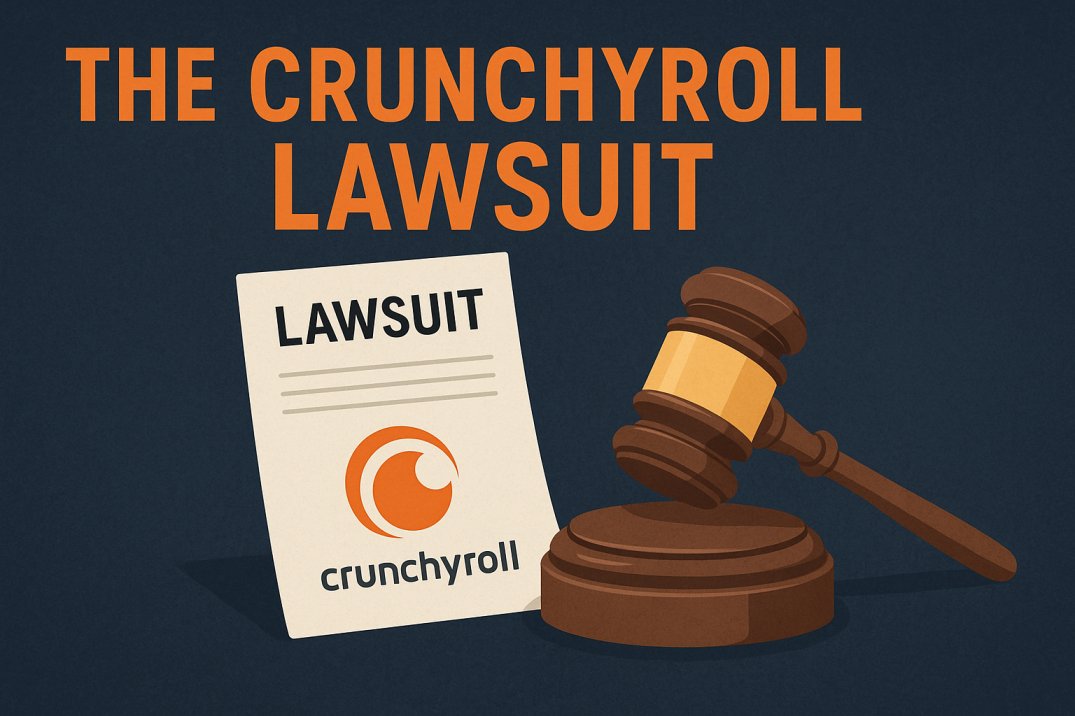Crunchyroll is under fire. The popular anime streaming platform now finds itself at the center of a serious legal battle. A user filed a lawsuit that accuses the company of sharing private data without permission. The lawsuit says Crunchyroll gave personal viewing information to Meta, the parent company of Facebook.
This case is not just about one company. It raises larger questions about how digital platforms treat user data. People trust streaming services to protect their privacy. When that trust breaks, users feel exposed and powerless.
Crunchyroll built its reputation by offering easy access to anime content. Millions use the platform to watch their favorite shows. Behind the scenes, though, the platform used tools that sent private data to third parties. That discovery shocked many users.
The issue isn’t just technical. It’s about consent. Users did not agree to share that information. They didn’t even know it was happening. That’s what makes the lawsuit important.
This isn’t the first time a company has faced questions over digital privacy. But Crunchyroll’s case is a clear reminder that laws like the Video Privacy Protection Act still matter. Big tech must follow the rules, no matter how advanced their tools become.
Let’s break down what happened and why it matters now more than ever.
What Caused the Crunchyroll Lawsuit?
Sony owns Crunchyroll. A user named Lisa Cuevas filed a lawsuit against Sony. She claimed Crunchyroll gave Meta’s Facebook access to her private viewing data. She said this happened without her consent.
This action may violate the Video Privacy Protection Act. The law stops video services from sharing personal user data. That includes names, email addresses, and video history.
What the Law Says
The VPPA protects people who use video services. It stops companies from giving out private information. This includes data that links someone to what they watched.
Sony allegedly broke this rule. The lawsuit says Crunchyroll handed over user data to Facebook without permission.
How Crunchyroll Sent the Data
Crunchyroll used Facebook’s pixel and SDK tools. These tools track user actions on websites. They send that information to Facebook. This includes what people watch, who they are, and their device details.
The pixel code sends that data in the background. Users don’t see it or approve it.
What is an FID?
Facebook gives each user a special ID called an FID. It ties directly to the user’s profile. When someone watches a Crunchyroll video, the code may link that viewing activity to their Facebook account. This only works if the user has an FID cookie in their browser.
Lisa Cuevas claims Sony knew this was happening. She said Crunchyroll still allowed it.
Who Filed the Lawsuit?
Lisa Cuevas used Crunchyroll from 2018 to 2023. She also had a Facebook account since 2009. She shared her name, address, email, and IP address to sign up.
She received emails and updates from Crunchyroll. She never gave permission to share her data with Facebook. She said there was no notice about this either.
That lack of consent led to the lawsuit.
Where and When It Happened
Lisa Cuevas filed the lawsuit on September 8, 2022. She took legal action in the U.S. District Court for the Northern District of Illinois. Judge Sara L. Ellis oversaw the case.
The lawsuit focused on Sony, the parent company of Crunchyroll. Sony rejected all accusations. It said it did nothing wrong. Still, the company chose to settle the case.
Sony agreed to pay $16 million. It did not admit guilt. The company said the decision avoided a long legal fight. It also helped cut down high legal expenses and the risk of future trouble.
This settlement brought quick closure but did not erase public concerns about how Crunchyroll handled user data.
Who Could Join the Case?
People had to meet three conditions:
-
They must live in the U.S.
-
They must have used Crunchyroll between September 8, 2020, and September 20, 2023
-
They must have watched videos through Crunchyroll’s site or app
If they met the rules and filled out the form, they could claim money.
Did People Get Paid?
Yes. Most people received about $30. Some got a little less. Payments came through digital platforms.
People who wanted to sue Sony directly could skip the claim. They had to send a letter to remove themselves from the class action. That step meant they gave up their share of the payout.
Who Handled the Case?
The court appointed lawyers to represent the users. The legal team included:
-
Brandon Wise and Adam Florek from Peiffer Wolf Carr Kane Conway & Wise, LLP
-
Michael L. Murphy from Bailey Glasser LLP
Users didn’t pay these lawyers. They could also choose their own if they wanted.
Why This Case Matters
The Crunchyroll lawsuit shows what happens when privacy rules get ignored. It proves that even big companies must respect user data.
Many users never know what tools like pixels and cookies really do. These tools track more than browsing. They collect real identities and match them to actions. That can expose people without their knowledge.
What Users Can Learn
This case offers clear lessons:
-
Read the site’s privacy policy
-
Use tools to block cookies and tracking
-
Know your rights under privacy laws
-
Take legal steps if your data gets shared
People trust platforms to keep their information safe. That trust breaks when companies sell or share it in secret.
Final Thoughts
The Crunchyroll lawsuit is more than just a cash settlement. It brings a deeper issue to the surface. People care about their privacy. They want to know who handles their data and how it gets used.
This case sends a strong message. Streaming platforms cannot ignore privacy laws. They must ask for clear permission before sharing personal details. No company, no matter how big, can treat user data like a business asset.
Users want simple things—control over their own information and honest communication. They don’t want to read hidden clauses or guess what’s happening behind the screen.
The lawsuit against Crunchyroll proves one thing. When companies break trust, people fight back. The law protects users, and people are willing to use it.
This case is a warning to every digital service. Respect privacy or face the consequences.
Muhammad Suleman Ahmad is a content writer covering lawsuits, legal explainers, and court-related topics for LawsuitDeck.com. His work is structured for clarity and general understanding.


